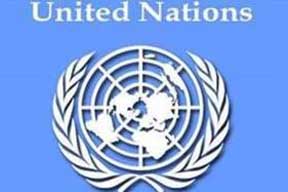 UNITED NATIONS: Making a strong pitch for urgent reform of an “ineffective” Security Council, India has said the UN body’s “malfunctioning” has affected over 60 million people and resulted in huge human and economic costs in terms of wars and conflicts.
UNITED NATIONS: Making a strong pitch for urgent reform of an “ineffective” Security Council, India has said the UN body’s “malfunctioning” has affected over 60 million people and resulted in huge human and economic costs in terms of wars and conflicts.
“We note that that an ineffective Security Council has meant huge human, economic and environmental costs in terms of wars and conflicts, which the international community cannot justify,” India’s Permanent Representative to the UN Ambassador Asoke Mukerji said here yesterday.
“The figures speak for themselves, especially the single biggest statistic of more than 60 million people affected by the malfunctioning of the Security Council,” he said during the General Debate of the General Assembly on ‘Question of equitable representation and increase in the membership of the Security Council’.
Mukerji emphasized that the international community’s work on UNSC reform cannot be seen in “isolation” as some kind of academic exercise which has no relation to the world.
“The very fact that our leaders, unanimously, adopted the most ambitious Agenda 2030 to eradicate poverty from the face of the earth within one generation gives our work a context and framework.
“The longer we delay in reforming the Security Council, the more pressure we put on the successful implementation of Agenda 2030, especially for developing countries,” he said.
The debate was convened by UN General Assembly President Mogens Lykketoft days ahead of the commencement of the next round of Inter-Governmental Negotiations (IGN) under a new chair — Luxembourg’s envoy to the UN Sylvie Lucas.
This will be the first round of IGN talks after the UNGA had adopted last month by consensus a negotiating text that would form the basis of further talks on the reform process.
India’s candidature as a permanent member of a reformed and expanded Security Council was supported by permanent member the UK as well as by France.
In the debate yesterday, Pakistan opposed creation of new permanent seats and said the body instead needed expansion in the category of elected seats given the increase in the UN’s membership since the Council was last expanded five decades ago.
“A few countries have sought to promote their self- arrogated right to a privileged and unequal status. And they have maintained this rigid position since the process began about two decades ago,” Pakistan’s envoy to the UN Maleeha Lodhi said in her remarks. She said this “rigidity and blind pursuit of national ambition is the real reason for our persisting failure to achieve a more democratic, accountable, transparent and effective Security Council,” she added.
Lodhi said the democratization of the Council required the aggregation and promotion of the interests and aspirations of all member states, no matter their size.
She said there was no evidence to support the argument that more permanent seats could enhance the Council’s legitimacy, calling on member states to “soberly” think whether permanence was a solution to “so-called present day political realities” that were themselves transient.
“Had there been flexibility on the part of delegations that had unjustifiably insisted on securing permanent seats, many member states would have already played a positive role in the Security Council,” she said.
Mukerji called for an announcement of a fixed schedule of meetings of the IGN beginning early next month, at a regular interval to commence text based negotiations, saying that meetings should be held at least once a week given the urgency of the subject at hand.
He said India looks forward to the Chairperson circulating a communication conveying the substantive agenda of these negotiations during the 70th session “based on the text.” –PTI





